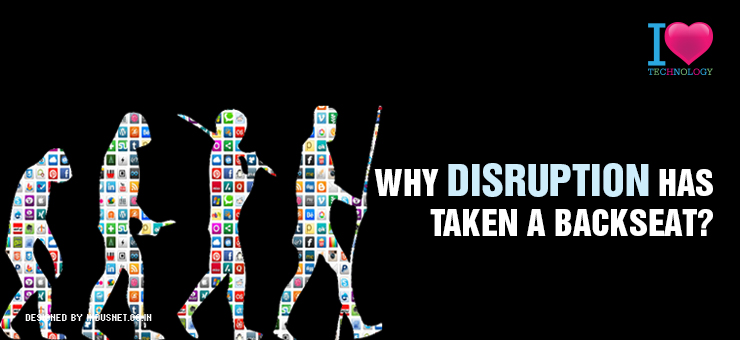
We have heard this before and you’ve probably read it a number of times – that disruption is taking place and that things will never be the same again. First came the email, and finally came Uber. Everyone’s waiting for the next big disruption to happen. Yet, things seem to cool down. The reason for this is, too many start-ups have begun to consider themselves disruptors and too many investors have been investing in the wrong businesses. The bubble sooner or later had to crack.
Do we always need disruption? What is real disruption anyway?
It simply is not possible for everything to be disrupted through technology alone. Moreover, a few things need not be disrupted at all. At the heart of this fancy towards disruption is a need for sensation. Disruption often takes the form of sensational headlines, viral posts, and a lot of other things that people get to talk about. However, real work and efforts do not garner so much of attention, because they do not capture human attention. Yet these are the ones that will eventually disrupt, without us even realizing it. For example, Gmail has evolved to become the most used email service today.
[php snippet=1]
Google did not disrupt email space with Gmail. Instead, it offered something better, and continued to work on it for years and years. Even after more than a decade, Gmail remains the best option to use. It disrupted all other email services and continues to evolve. Yet, one does not call it disruption because Gmail did not arrive with a bang. There are hundreds of examples like this, where disruption takes place slowly over the years, and are not apparent until everything around has changed.
Disruption can happen slowly over the years
One can only remember how things used to be, and we still can’t believe things have all changed so much, so quickly. On the other hand, angel investors and start-ups which hope to lead the next big disruption often end up with sour experiences. This is because, they are trying to disrupt for the sake of disruption. Start-ups want to raise as much funding as possible, and that very race and obsession leads them to a downward spiral.
If one really wants to disrupt an industry, one must usually work for years, and work really hard. Not everyone can be the next Uber, though there are of course exceptions. The reason why this needs to be said is, too many talented people often fall to the lure of angel investments and disruption. Instead, if they slowly and steadily work towards success, it shall certainly happen.
Looking forward
Certainly, disruption is required. However, start-ups should be encouraged to focus on real strengths and not focus on disruption for the sake of disruption. It also makes sense not to raise funds that are not required. It is in the interest of small companies and start-ups to focus on slow and steady growth and innovation, based on real R&D. And indeed, this slow and steady evolution is a more lasting form of disruption.